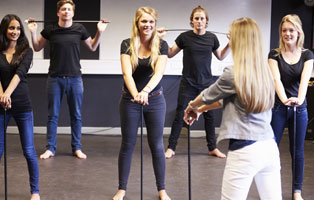The specialist schools programme is a UK government initiative that encourages secondary schools in England to specialise in certain areas of the curriculum to boost achievement. The Specialist Schools and Academies Trust is responsible for the programme.
Specialist schools – arts, drama, music…. Currently there are nearly 3,000 specialist schools, or 88 per cent of the state-funded secondary schools in England. In the independent sector the term ‘specialist’ tends to focus more on developing outstanding talents mainly in a range of extra-curricular activities such as drama, music and the arts. The principal independent boarding schools in music, dance and drama are covered below.
Music and dance
The Music and Dance Scheme (MDS) is a government-funded scheme to provide support for talented musicians and dancers. You can find out more at www.gov.uk/music-dance-scheme. There are nine MDS specialist schools throughout the UK, committed to the highest teaching standards in music and dance, alongside an excellent academic education. MDS schools are listed below.
Music and Dance Scheme schools
Chetham’s School of Music www.chethams.com
Elmhurst School of Dance www.elmhurstdance.co.uk
St Mary’s Music School www.stmarysmusicschool.co.uk
The Hammond School www.thehammondschool.co.uk
The Purcell School for Young Musicians www.purcell-school.org
The Royal Ballet School www.royalballetschool.co.uk
Tring Park School for the Performing Arts www.tringpark.com
Wells Cathedral School www.wells.cathedral.school.org
Yehudi Menuhin School www.menuhinschool.co.uk
Choir schools
The Choir Schools’ Association (CSA) represents 44 schools attached to cathedrals, churches and college chapels around the country. Pupils have unlimited access to first-class schooling and musical training, giving them an excellent start in life. More than 1,200 of the 21,500 boys and girls in choir schools are choristers. Some CSA schools take children from 7 to 13, others are junior schools with senior schools to 18. The majority are Church of England foundations, but the Roman Catholic, Scottish and Welsh churches are all represented. The majority are fee paying, with nine out of ten choristers qualifying for financial help with fees from the school or through the Government’s Choir Schools’ Scholarship Scheme. To find out more, go to www.choirschools.org.uk. The choir schools offering boarding are listed in the table below.


